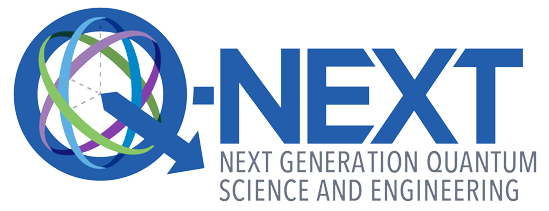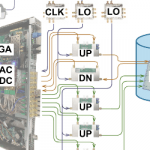MIT joins Q-NEXT national quantum research center

(NewsWise: DOE Science News Source) MIT has joined the Q-NEXT quantum research center as a partner in its growing collaboration.
Q-NEXT, a National Quantum Information Science Research Center led by the U.S. Department of Energy’s Argonne National Laboratory, is a partnership of roughly 100 researchers at 25 national lab, university and industry institutions.
Q-NEXT’s mission is to develop the science and technology for controlling and distributing quantum information, whether the information is sent across a computer chip or over a continent.
To that end, center partners are advancing technologies in quantum communication, sensing and simulation. The research lays the groundwork for potentially game-changing impacts in our everyday lives, such as the advent of unhackable information networks and biosensors that can make measurements of individual cells in tissue.
A major part of the center’s program is the development of high-quality, standardized materials for quantum devices, including qubits — the quantum analog of the classical computer bit.
Q-NEXT collaborators at MIT will be led by Danna Freedman, the Frederick George Keyes professor of chemistry at MIT. Her team is harnessing molecular chemistry to create materials by design. Their atomically precise qubits will be integrated with devices and measurement approaches to create next-generation quantum technologies.
“We are delighted to be a part of this interdisciplinary team working at the forefront of quantum information science,” Freedman said. “The tremendous range of expertise within this center will enable us to translate our molecular approach to quantum information science toward real applications through integration with cutting-edge measurement and fabrication approaches.”
The development of quantum materials is foundational to the Q-NEXT program. This year, the Q-NEXT team is scheduled to launch two new quantum foundries at its partner national labs — Argonne and SLAC National Accelerator Laboratory — to serve as an in-demand source of quantum materials.
As a Q-NEXT partner, MIT will play an important role in expanding synthetic chemistry research for not only qubit development at the foundries but also the center’s broader quantum-materials work.



















